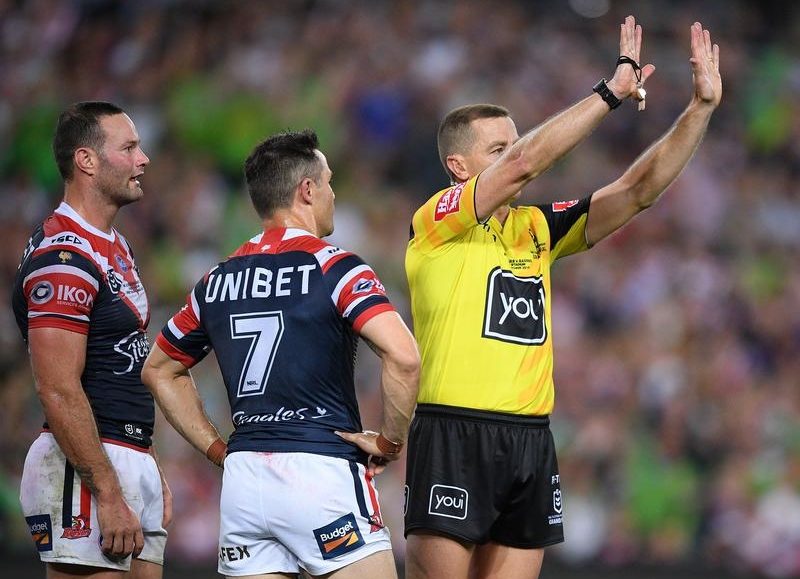
Twelve years after helping lead the push for two whistleblowers, Matthew Elliott warns referees may struggle with “decision fatigue” with the removal of the pocket official.
The match officials union is set to confront the NRL on Tuesday over the decision to return to a one-referee model when they meet with the Fair Work Commission.
The league insists the change will be in place for the May 28 season restart, insisting it’s not fazed by the possibility of strike action.
The 21-page enterprise agreement between the NRL and its officials contains nothing stating the game must stay with two referees.
But regardless, Elliott is concerned that most of the current 22 fulltime officials have not refereed solo in the top grade previously.
Only Gavin Badger, Matt Cecchin and Ben Cummins remain from the 2008 NRL season after which the change was made to two referees, while Ashley Klein has experience as solo ref in Super League.
Former coach Elliott sat on the steering committee alongside then-referees boss Robert Finch and Bill Harrigan in 2008 that recommended adding a second referee from the following season.
It was a move to speed up the ruck and make the game quicker, with need seen for an additional set of eyes to police the wrestle.
But there were also fears of referee fatigue.
Data at the time showed referees were running 7.6 kilometres per match, with their heart rate above 175 beats per minute for almost two-thirds of the game.
“They’ve got 10 metres, they’ve got the ruck, they’ve got a whole lot of things (to control),” Elliott told AAP.
“Then they have to look at what’s actually happening in the tackle. There are a million variables they have to assess.
“So it’s not just physical but decision fatigue, which is what happens at the elite level with people who have to make decisions all the time.
“You get to a certain threshold where inaccuracy becomes the norm.”
Elliott would rather the NRL stick with two referees, but only hand one a whistle.
And while he’s willing to accept the change – and likes the new six-again rule for ruck infringements – he is concerned that the faster game make it even hard for one referee now.
Figures from 2018 showed that even with the introduction of two referees, whistleblowers ran around eight kilometres per match, with the ball also in play more.
There is also more for referees to rule on compared to 12 years ago, including the new six-again rule that has previously been trialled in just one All-Stars match.
The players’ union claims 80 per cent of play-the-ball penalties and illegal tackles have been called by the pocket referee.
And while the NRL has indicated touch judges and the bunker will assist with the ruck, Elliott could still see it becoming too much for one official given little time to adjust to the change.
“Just having one referee adjudicating it, so he not only has to adapt to being on his own now, he obviously has to adapt to the new rule,” Elliott said.
“It’s going to increase the speed of the ruck we think. So he will have to adjudicate the ruck a lot more.
“It’ll be a faster game so that is going to take a lot more out of him physically.
“It’s a bit of a spiral.
“If they had a whole pre-season to prepare around this, I would feel more at ease.”





